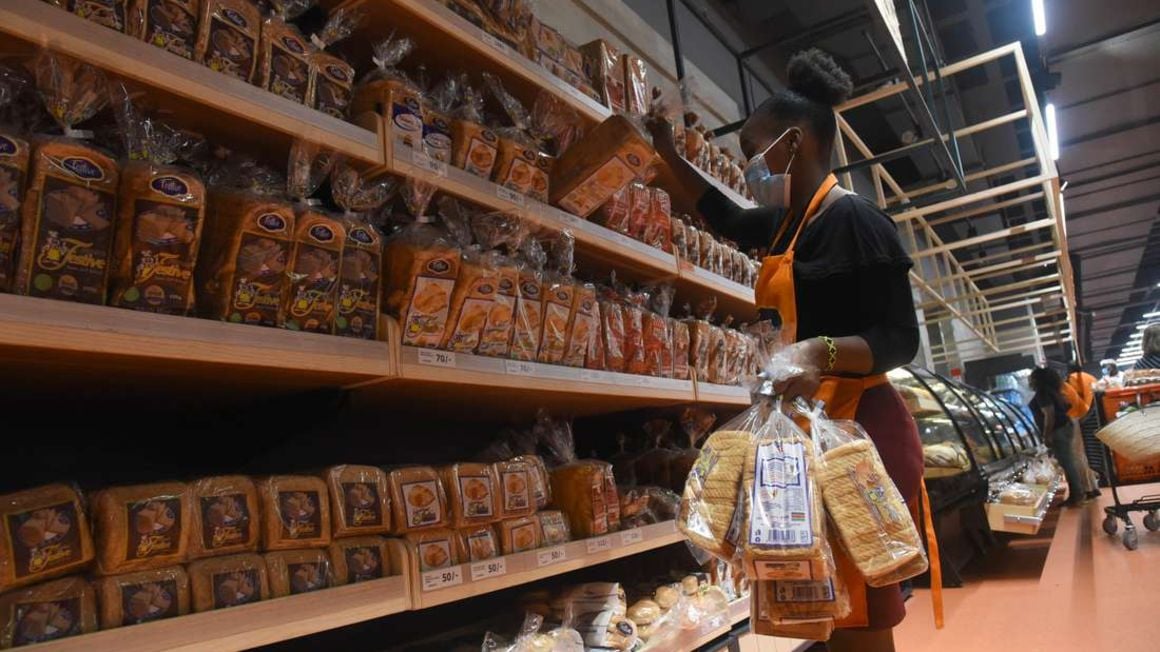
A supermarket attendant arranging loaves of bread on a shelf in October 2020. PHOTO | EVANS HABIL | NMG
Summary
- The survey found that most business executives in 11 sectors of the economy projected mixed demand and orders in the third quarter, pointing to the negative effects of higher prices that saw inflation rise to a 17-month high of 6.4 percent in July.
- Higher prices of food items such as cooking oil, bread, beef, wheat flour and rice have been the main cause of the rising inflation, meaning that producers in the agricultural and manufacturing sectors are likely to suffer the biggest effect.
A majority of company chief executives in Kenya believe rising inflation will negatively affect the performance of their firms in the current quarter as higher prices of goods cuts demand, a new survey by the Central Bank of Kenya(CBK) has shown.
The survey found that most business executives in 11 sectors of the economy projected mixed demand and orders in the third quarter, pointing to the negative effects of higher prices that saw inflation rise to a 17-month high of 6.4 percent in July.
Higher prices of food items such as cooking oil, bread, beef, wheat flour and rice have been the main cause of the rising inflation, meaning that producers in the agricultural and manufacturing sectors are likely to suffer the biggest effect of the reducing demand.
The chief executives were polled by the Central bank of Kenya (CBK) in the first two weeks of July as part of its periodic surveys ahead of monetary policy meetings, the latest of which was held on July 28.
“The CEOs indicated that the increase in vaccinations, increased economic activity, and government investment in infrastructure portend increased opportunities…however, firms reported that activity in the third quarter was likely to be impacted by higher inflation,” said CBK in the survey report released yesterday.
“Across all sectors, reduced consumer demand and increased taxation were identified, among others, as significant factors that could constrain expansion/growth of private sector firms over the next 12 months.”
The firms, therefore, expect that the number of employees in their books will largely remain the same well into the fourth quarter of the year.
The CBK added, however, that forms in the agriculture sector intend to tackle the demand challenges through better marketing and sales drives, while in the manufacturing sector they intend to manage costs and risks to protect their bottom line.
The concerns over inflation are not limited to businesses only, with consumers also grappling with higher energy costs due to costlier petroleum prices, on top of the rising cost of food.
This has strained household budgets, at a time when many have also had to dig deeper into their pockets to pay school fees for their children who are running a four-term year under the accelerated programme to claw back time lost to the Covid-19 shutdown of 2020.


No comments:
Post a Comment